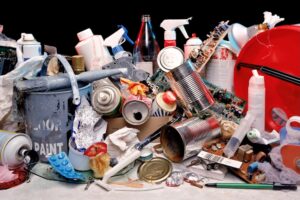Klean Kanteen is a company that’s passionate about creating a better world. As a family-owned and -operated business, Klean Kanteen has made sustainability and ethics a core part of their mission. They’re committed to creating products that are not only high-quality and durable but also kind to the planet and the people who make them.
This post will explore Klean Kanteen’s impact and values, including their commitment to sustainability, ethics, and supporting important causes.
Sustainability
Klean Kanteen is dedicated to reducing their environmental impact in every aspect of their business. They’re a Climate Neutral Certified brand, which means they measure their carbon footprint annually, reduce what they can, and offset the rest by purchasing verified carbon offsets. They’re also a member of 1% For the Planet, meaning they invest 1% of their sales into organizations working to make the world a more resilient and sustainable place.
Klean Kanteen also creates products that are designed to be reused again and again. Their bottles and drinkware are made from durable materials like stainless steel and silicone and are built to last. By creating products that don’t need to be replaced frequently, Klean Kanteen is helping to reduce waste and promote a more sustainable future.
Ethics
Klean Kanteen is committed to ethical business practices, from the materials they use to the people who make their products. They use only high-quality, non-toxic materials that are safe for both people and the planet, such as stainless steel and food-grade silicone.
They also work with suppliers who share their commitment to ethical business practices. Klean Kanteen believes in fair labor practices and only works with suppliers who share their values. They also ensure that their products are made in factories that adhere to high ethical and environmental standards.
Causes
Klean Kanteen is dedicated to supporting causes that align with their mission of sustainability and ethics. They’re a member of 1% For the Planet, and through this partnership, they’ve donated over $3.7 million to organizations working on issues such as plastic pollution, safe consumer products, conservation and climate, and outdoor stewardship.
Klean Kanteen also partners with organizations like Leave No Trace to promote environmental stewardship and education. Through their partnership with Leave No Trace, Klean Kanteen has been able to spread awareness about the importance of responsible outdoor recreation and sustainability.
Final Thoughts
Klean Kanteen is a company that’s committed to creating products that are both sustainable and ethical. From their commitment to reducing their environmental impact to their dedication to fair labor practices, Klean Kanteen is a brand that’s working to create a better world. By supporting causes that align with their mission, Klean Kanteen is also making a difference in the world beyond their products. If you’re looking for high-quality, sustainable products that are made with ethics in mind, Klean Kanteen is a great choice.
Related Topic:
Promoting Sustainability: The Benefits of Using Recycled Steel and Non-Toxic Materials
As we become more aware of the impact our actions have on the environment, many of us are seeking ways to reduce our environmental footprint and promote sustainable practices. We can do this by using eco-friendly materials like recycled steel and non-toxic materials in our everyday lives. This blog post will explore the benefits of using recycled steel and non-toxic materials and how they can help us promote sustainability.
The Benefits of Using Recycled Steel
Recycling steel is one of the most sustainable practices we can adopt. Here are some of the benefits of using recycled steel:
- Reduced Energy Consumption: Reduced energy consumption is one of the most significant benefits of using recycled steel. Recycling steel requires significantly less energy than producing new steel from raw materials. According to the Steel Recycling Institute, recycling one ton of steel conserves 2,500 pounds of iron ore, 1,400 pounds of coal, and 120 pounds of limestone. By using recycled steel, we can conserve natural resources and promote sustainable practices.
- Reduced Carbon Emissions: Recycling steel also has significant environmental benefits, including reduced greenhouse gas emissions. According to the World Steel Association, recycling steel reduces CO2 emissions by around 58% compared to the production of new steel from raw materials. This reduction in carbon emissions can help to mitigate the impact of climate change and promote a more sustainable future.
- Economic Benefits: The use of recycled steel also has economic benefits. According to the Institute of Scrap Recycling Industries, the U.S. scrap recycling industry generates around $105 billion annually and employs more than 500,000 people. We can create economic opportunities by supporting the recycling industry and using recycled steel while promoting sustainable practices.
- Long Lifespan and Closed-Loop System: Steel is a durable material that can be recycled indefinitely without losing its properties or quality. By using recycled steel, we can reduce the amount of waste sent to landfills and conserve natural resources. Additionally, recycling steel is a closed-loop system, which means that the steel can be recycled over and over again without losing its quality. This reduces the need for virgin materials and conserves natural resources.
The Benefits of Using Non-Toxic Materials
Using non-toxic materials is another way we can promote sustainability and reduce our environmental impact. Here are some of the benefits of using non-toxic materials:
- Reduced Pollution: Non-toxic materials do not contain harmful chemicals that can leach into the environment during their production, use, or disposal. Many materials that are not non-toxic can release harmful chemicals into the environment, which can harm wildlife and ecosystems. For example, plastic products can release toxins like BPA and phthalates into the environment, which can have adverse effects on marine life and human health.
- Health Benefits: Using non-toxic materials can benefit our health and well-being. Toxic materials, such as plastic or non-stick coatings, can release harmful chemicals when heated or scratched, which can have adverse effects on our health. By using non-toxic materials, we can reduce our exposure to these harmful substances and promote a healthier lifestyle.
- Durability and Sustainability: Non-toxic materials are typically more durable and long-lasting than their toxic counterparts, which reduces the need for frequent replacements and lowers the overall environmental impact. Many non-toxic materials, such as stainless steel and food-grade silicone, are known for their strength, resistance to corrosion, and heat resistance, making them ideal for a wide variety of applications.
Promoting Sustainability
By using eco-friendly materials like recycled steel and non-toxic materials, we can significantly promote sustainability and reduce our environmental footprint. But there are other steps we can take to promote sustainable practices further and protect the environment. Here are a few additional things we can do:
- Reduce our overall consumption of materials: By using fewer resources in our daily lives, we can reduce the amount of waste generated and promote sustainability. This can include things like reducing our use of single-use plastics, using reusable products, and reducing our energy consumption.
- Choose renewable energy sources: Renewable energy sources like solar, wind, and hydropower can help to reduce our reliance on fossil fuels and lower our carbon footprint. By choosing renewable energy sources, we can promote a more sustainable future.
- Support sustainable businesses and practices: By supporting businesses that prioritize sustainability and environmentally friendly practices, we can encourage others to adopt these practices and create a more sustainable economy.
- Educate ourselves and others: By learning more about environmental issues and sharing our knowledge with others, we can help to raise awareness and promote sustainable practices.
Final Thoughts
Promoting sustainability is essential for protecting the environment and ensuring a better future for generations to come. Using eco-friendly materials like recycled steel and non-toxic materials can have significant environmental and economic benefits, including reduced energy consumption, reduced carbon emissions, and reduced pollution. By adopting these practices and taking other steps to promote sustainability, we can make a positive impact on the world around us and create a more sustainable future for everyone.









Reader Interactions